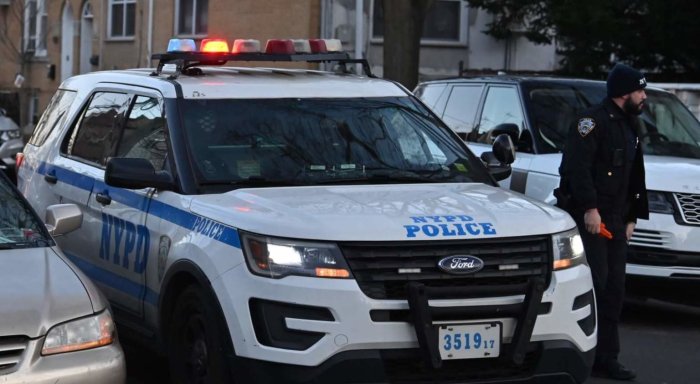By Philip Newman
Most of those who spoke at a public hearing Tuesday presided over by Councilman John Liu (D-Flushing), chairman of the Council's Transportation Committee, said they agreed with the spirit of the proposal.But several found fault with the way it was written with some suggesting it was all but unenforceable and others wondering whether it would be telling city agencies how to do their jobs.Intro. 250, sponsored by Councilman Leroy Comrie (D-St. Albans) would require trucking companies to provide color-coded route maps and routing sheets to drivers.Intro. 306, introduced by Councilman David Yassky (D-Brooklyn) would increase the number of New York Police Department traffic enforcement officers on local streets.Liu said something must be done to ease the numbers of trucks using illegal routes through the city.”It has become a commonplace and often illegal practice for truck drivers to deviate from designated legal truck routes,” Liu said.”This unauthorized activity has considerable adverse impacts upon residential neighborhoods, placing residents and other motorists in danger, spewing air and noise pollution, degrading street infrastructure and taking down tree branches and power lines,” he said.He pointed out that the current system of designated truck routes was established 25 years ago but the city Department of Transportation has not revised the system to reflect the changing demographics of communities. “We are at our wit's end,” the councilman said.Liu complained that the DOT was supposed to have completed a truck management study in two years but now says it will take an additional year to finish it.Inspector Leonard Roppa, commander of the Police Parking Enforcement District, said his agency agreed with “the spirit of the legislative findings contained in the bill.””However, we strongly disagree with the suggested means of addressing this issue as proposed in the bill,” he said.Roppa said the measure directs the police to identify and assess locations of truck route violations, then requires 5 percent of Level 1 traffic enforcement agents to be promoted to Level IV and deployed in locations identified by the study.”We respectfully suggest that promotion and deployment of the police must remain within the purview and discretion of police executives and this bill inappropriately seeks to limit the ability of the police commissioner to manage the operations of the police.Councilwoman Helen Sears (D-Jackson Heights) asked DOT Deputy Commissioner David Wallach how much the unfinished study on trucks had cost.”Wallach replied that so far it had cost $1.3 million “most of it federal funds.””This consulting firm you say is doing the study, who do they consult? I have never been consulted by anybody on this matter,” Sears said.Wallach said the firm doing the study had held meetings with neighborhood groups in pursuit of the study. Wallach also questioned whether some of the proposed legislation might clash with some of the stated assignments of the DOT.Reach contributing writer Philip Newman by e-mail at news@timesledger.com or by phone at 718-229-0300, Ext. 136.
































